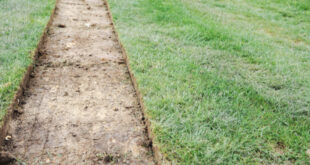The Bureau of Reclamation has announced it will fund three California congressionally authorized Title XVI Water Reclamation and Reuse Projects. The $12,867,342 to be shared by the three California water agencies is part of a total of $16.98 million Reclamation is providing to a total of five water agencies. Of the other two one is in Hawaii, the other is in Texas.
The Title XVI is part of Reclamation’s WaterSMART Program focuses on improving water conservation and helping water-resource managers across the West to make sound decisions about water use. The funding is only available to the sponsors of the 53 congressionally authorized Title XVI projects, so long as they have not reached their statutory federal funding ceiling.
“The Title XVI program is successful in helping communities to look beyond the traditional surface or groundwater sources,” said Reclamation Commissioner Brenda Burman. “This program allows communities to diversify their water supply—exploring water reuse, recycling and other techniques while improving efficiency and flexibility during water shortages.”
Two of the California water agencies are in San Diego. The third is in Riverside County’s Rancho California. The Reclamation funded agency projections are:
- City of San Diego, San Diego Area Water Reclamation Program (SDWRP) — The San Diego Area Water Reclamation Program, part of the Pure Water Program, will receive $10,361,379 from Reclamation’s WaterSMART Program. It will help fund a phased, multi-year program to make 93,000 acre-feet, or 30 billion gallons, of water available per year by 2035. The accounts for 30 percent of the city of San Diego’s water supply. The funding will be used to complete the final design of the project. The SDWRP will provide the city with a new, reliable source of potable water and will reduce the amount of wastewater that is released into the ocean.
- Padre Dam Municipal Water District (PDMWD), San Diego Area Water Reclamation Program — PDMWD is implementing a Phase I Water Recycling Project including the expansion of the Ray Stoyer Reclamation Facility, potable reuse conveyance pipelines, construction of a new advanced water purification facility, a product water pump station, and a biosolids digestion facility to offset energy demands of the project. The water district provides water, wastewater, recycled water and recreation services to 100,000 residents in the San Diego suburbs of Alpine, Blossom Valley, Crest, Dehesa, El Cajon, Harbison Canyon, Lakeside Flinn Springs and Santee. The PDMWD reclamation project is expected to create 3,900 acre-feet, or 127 million gallons, annually of potable water by capturing wastewater flows that would otherwise be discharged to the ocean. They will receive $778,003 from Reclamation for this project.
- Rancho California Water District (RCWD), Rancho California Water District Project – RCWD will utilize the $1,727,960 it is slated to receive from Reclamation to implement components of its Demineralization and Non-Potable Conversion Program. This includes the design, materials, and construction activities to convert 54 irrigation sites to accept non-potable recycled water. The water agency, which provides water and wastewater services near Temecula and Rancho California in Riverside County, will also use the funding to support activities before construction of a small-scale recycled groundwater recharge facility. It is anticipated that the project will save 18,400 acre-feet, or nearly 6 billion gallons, of water per year.
Reclamation’s WaterSMART program works cooperatively with states, tribes, and local entities as they plan and implement actions to increase water supply reliability through investments to modernize existing infrastructure and attention to local water conflicts.
 California Water News Daily Your Source For Water News in California
California Water News Daily Your Source For Water News in California


